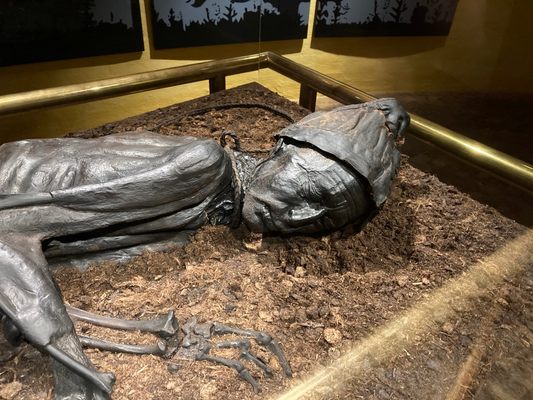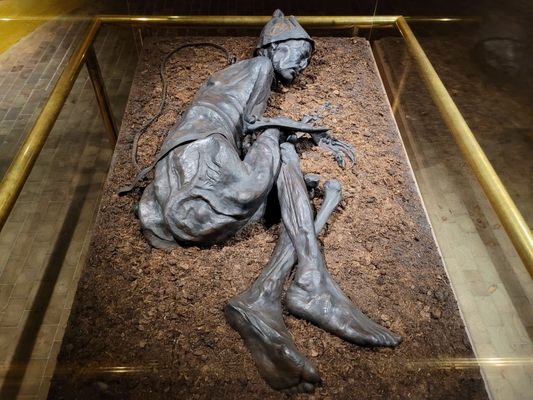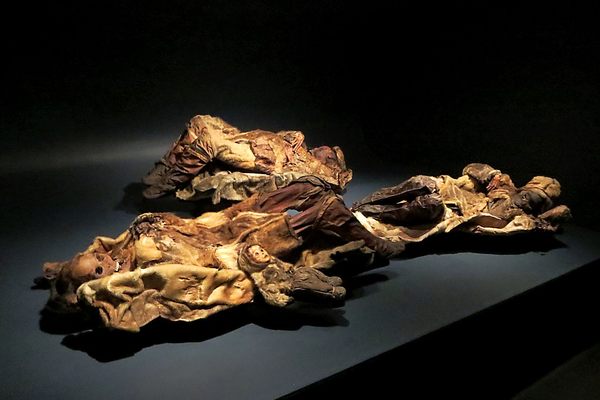About
The story of Tollund Man is like that of many of the other "bog people" discovered in the peat bogs of Northern Europe. His remains were uncovered in 1950 by villagers in the town of Tollund, Denmark, who were gathering peat for fuel.
Initially his remarkable state of preservation led the villagers to believe they were viewing a recent murder victim and after much debate, the local police were called to investigate. Puzzled by the appearance of the remains, the police asked a scientist named P. V. Glob to come and view the discovery. Recognizing that this was an ancient burial, Glob began efforts to remove the body for further study.
Like all the "bog people," Tollund Man showed signs of a violent death. Nude but for a leather cap and wide belt around his waist, the body was discovered with a rope tightly wound around his neck. Later research was to reveal that this Iron Age man had been hanged in what is commonly thought now to be a ritual sacrifice.
Knowledge on how to best preserve discoveries like Tollund Man was not yet known in 1950 and only the head of the original specimen was kept intact. The rest of the body was subjected to various tests to determine his probable age - 40 - and the conditions surrounding his life and death.
Tollund Man’s body was reconstructed for the exhibit which now resides at the Silkeborg Museum in Denmark. The detail evident in his face is remarkable. Stubble on his chin, eyelashes, and the wrinkles in his skin are all exceptionally well preserved. The rope used to end his life still lies wrapped around his throat and visitors can peer into the almost peaceful visage of this victim of ancient violence.
Related Tags
Published
October 28, 2010























